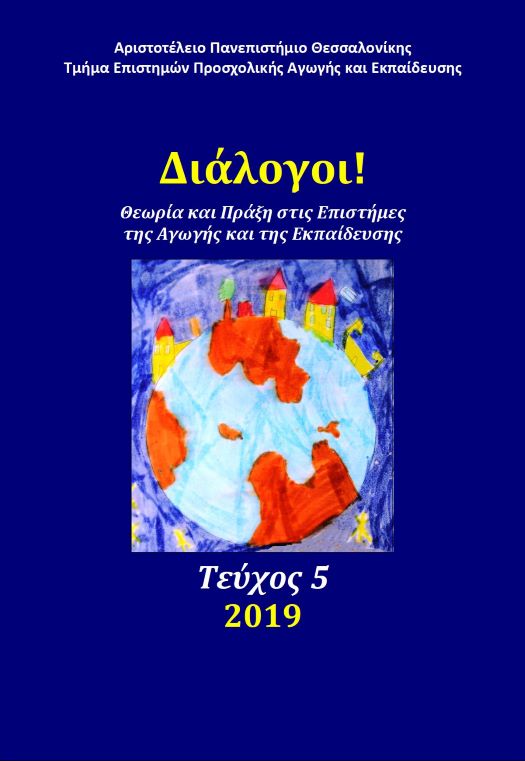Αξιολόγηση 2D και 3D ψηφιακών εκπαιδευτικών παιχνιδιών από φοιτητές-παίκτες: η σημασία των χαρακτηριστικών τους

Περίληψη
Τα σοβαρά παιχνίδια (ψηφιακά εκπαιδευτικά παιχνίδια μαθησιακού σκοπού) κερδίζουν ολοένα και περισσότερο το ενδιαφέρον πολλών μελετητών της μαθησιακής διαδικασίας όλων των εκπαιδευτικών επιπέδων. Σημαντικές πτυχές της εφαρμογής τους στην εκπαίδευση σχετίζονται με τα χαρακτηριστικά τους, τη συνάφειά τους με την παιδαγωγική και τις απόψεις των μαθητών. Αυτή η ποσοτική έρευνα επικεντρώθηκε στα χαρακτηριστικά των φοιτητών παιδαγωγικών τμημάτων (φύλο, επιστημονικό υπόβαθρο, προηγούμενη εμπειρία με παιχνίδια και δεξιότητες ΤΠΕ) και στους παράγοντες που επηρεάζουν και διαμορφώνουν την μαθησιακή εμπειρία τους όταν παίζουν σοβαρά παιχνίδια δύο (2D) και τριών (3D) διαστάσεων, όπως είναι η εμβύθιση, η απόλαυση, η υποκειμενική αντίληψη των μαθητών σχετικά με τη χρησιμότητά τους για τη βελτίωση της γνώσης, την επάρκεια της αφήγησης, τον ρεαλισμό, την ανατροφοδότηση, την οπτικοακουστική επάρκεια, τη συνάφειά τους με τα προσωπικά ενδιαφέροντά τους, τη σαφήνεια του στόχου τους, την ευκολία χρήσης τους, την καταλληλότητα του μαθησιακού υλικού και τα κίνητρα. Συνολικά 542 φοιτητές συμμετείχαν στη μελέτη. Σειρά μη παραμετρικών αναλύσεων (Mann-Whitney U tests και Kruskal-Wallis H tests) αποκάλυψε ότι οι φοιτητές προτίμησαν το 2D παιχνίδι. Το φύλο, το επιστημονικό υπόβαθρο και οι δεξιότητες στις ΤΠΕ δεν είχαν αντίκτυπο στις απόψεις τους. Από την άλλη πλευρά, οι φοιτητές με υψηλή ικανότητα στη χρήση των παιχνιδιών φαίνεται να έχουν καλύτερη μαθησιακή εμπειρία, καθώς οι βαθμολογίες τους στους περισσότερους παράγοντες ήταν υψηλότερες σε σύγκριση με τους φοιτητές με χαμηλότερη ικανότητα. Αυτά τα αποτελέσματα μας οδήγησαν να προσανατολιστούμε στην εξέταση άλλων πτυχών/δεξιοτήτων των φοιτητών πέρα από τα συνήθη δημογραφικά στοιχεία, όπως είναι η αυτορρύθμιση, η χωρική ικανότητα και η νοητική περιστροφή και να ερευνήσουμε τη δυνατότητα των σοβαρών παιχνιδιών να βελτιώσουν αυτές τις δεξιότητες.
Λεπτομέρειες άρθρου
- Πώς να δημιουργήσετε Αναφορές
-
Kaimara, P., Fokides, E., Oikonomou, A., Atsikpasi, P., & Deliyannis, I. (2019). Αξιολόγηση 2D και 3D ψηφιακών εκπαιδευτικών παιχνιδιών από φοιτητές-παίκτες: η σημασία των χαρακτηριστικών τους. Διάλογοι! Θεωρία και πράξη στις επιστήμες αγωγής και εκπαίδευσης, 5, 36–56. https://doi.org/10.12681/dial.20704
- Τεύχος
- Τόμ. 5 (2019)
- Ενότητα
- Επιστημονική Αρθογραφία

Αυτή η εργασία είναι αδειοδοτημένη υπό το CC Αναφορά Δημιουργού – Μη Εμπορική Χρήση – Παρόμοια Διανομή 4.0.
Οι συγγραφείς των άρθρων που δημοσιεύονται στο Διάλογοι! Θεωρία και Πράξη στις Επιστήμες Αγωγής και Εκπαίδευσης διατηρούν τα δικαιώματα πνευματικής ιδιοκτησίας επί των άρθρων τους, δίνοντας στο περιοδικό το δικαίωμα της πρώτης δημοσίευσης. Άρθρα που δημοσιεύονται στο Διάλογοι! Θεωρία και Πράξη στις Επιστήμες της Αγωγής και Εκπαίδευσης διατίθενται με άδεια Creative Commons 4.0 και σύμφωνα με την άδεια μπορούν να χρησιμοποιούνται ελεύθερα, με αναφορά στον/στη συγγραφέα και στην πρώτη δημοσίευση για μη κερδοσκοπικούς σκοπούς και με δικαίωμα τροποποίησης μόνον με παρόμοια διανομή (αν αναμείξετε, τροποποιήσετε, ή δημιουργήσετε πάνω στο υλικό, πρέπει να διανείμετε τις δικές σας συνεισφορές υπό την ίδια άδεια όπως και το πρωτότυπο).
To Τμήμα Επιστημών Προσχολικής Αγωγής και Εκπαίδευσης του Αριστοτέλειου Πανεπιστημίου Θεσσαλονίκης και το Εθνικό Κέντρο Τεκμηρίωσης διατηρούν το δικαίωμα να δημοσιεύουν, να αναπαραγάγουν, να παρουσιάζουν στο κοινό, να διανέμουν και να χρησιμοποιούν άρθρα που δημοσιεύονται στο Διάλογοι! Θεωρία και Πράξη στις Επιστήμες Αγωγής και Εκπαίδευσης σε οποιοδήποτε μέσο και μορφή είτε μεμονωμένα είτε ως μέρη συλλογικών έργων, για όλο το χρόνο διάρκειας προστασίας της πνευματικής ιδιοκτησίας και για όλες τις χώρες του κόσμου.
Αυτό περιλαμβάνει ενδεικτικά, και όχι αποκλειστικά, το δικαίωμα δημοσίευσης των άρθρων σε τεύχη του περιοδικού Διάλογοι! Θεωρία και Πράξη στις Επιστήμες Αγωγής και Εκπαίδευσης, αναπαραγωγής και διανομής μεμονωμένων αντιγράφων των άρθρων, αναπαραγωγής ολόκληρων των άρθρων σε άλλη έκδοση του Τμήματος Επιστημών Προσχολικής Αγωγής και Εκπαίδευσης του Αριστοτέλειου Πανεπιστημίου Θεσσαλονίκης και του Εθνικού Κέντρου Τεκμηρίωσης και αναπαραγωγής και διανομής των άρθρων ή περίληψης αυτών με χρήση πληροφορικού συστήματος αποθετηρίου.


